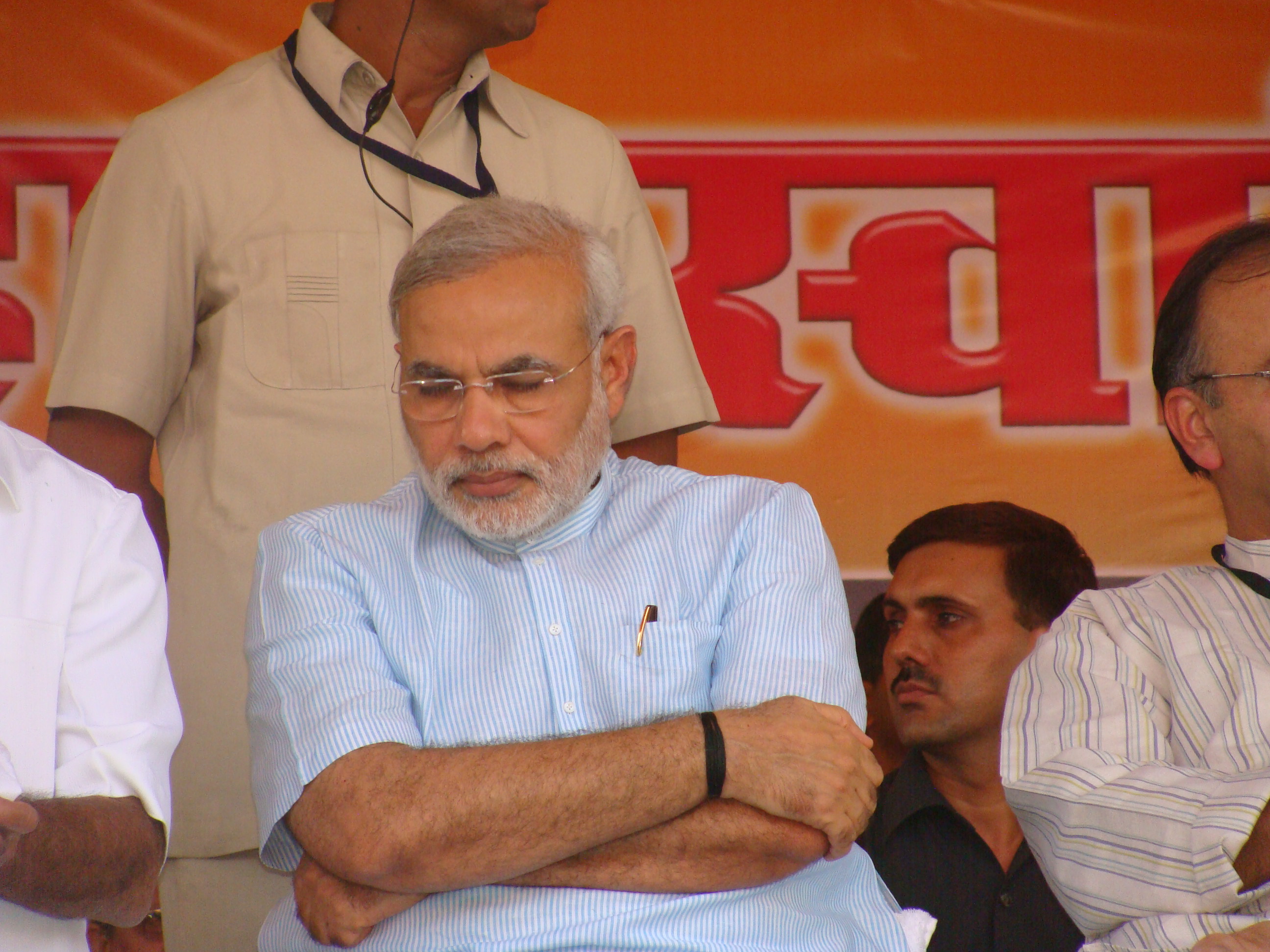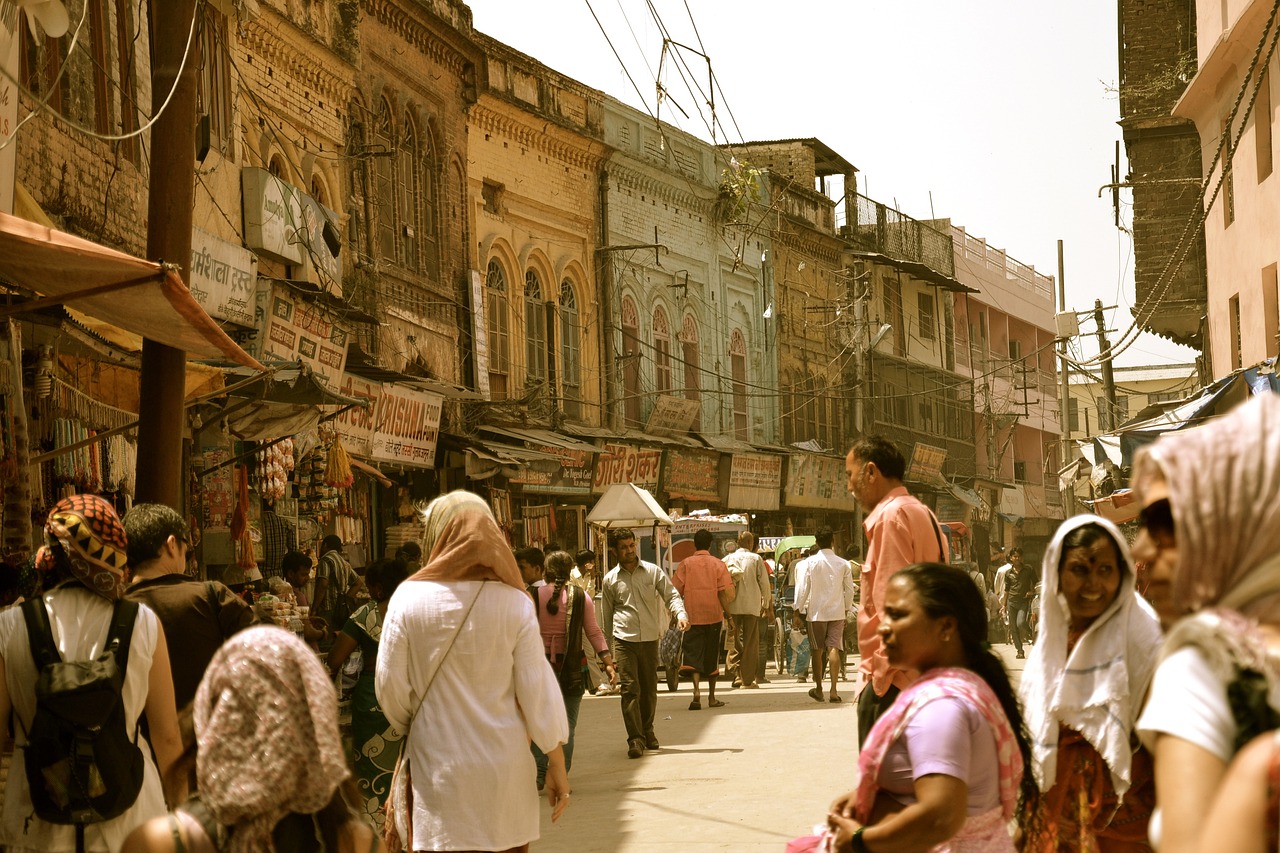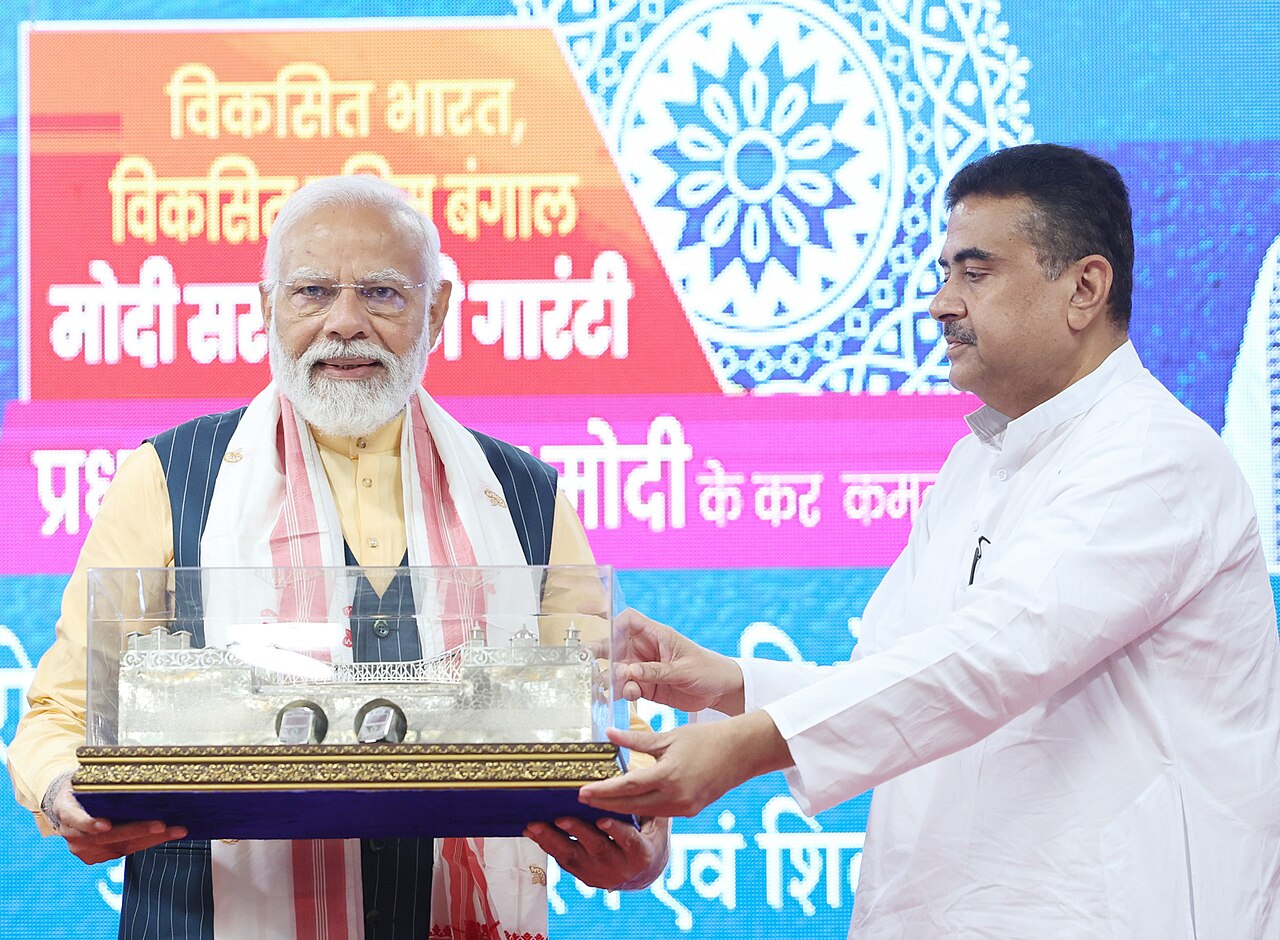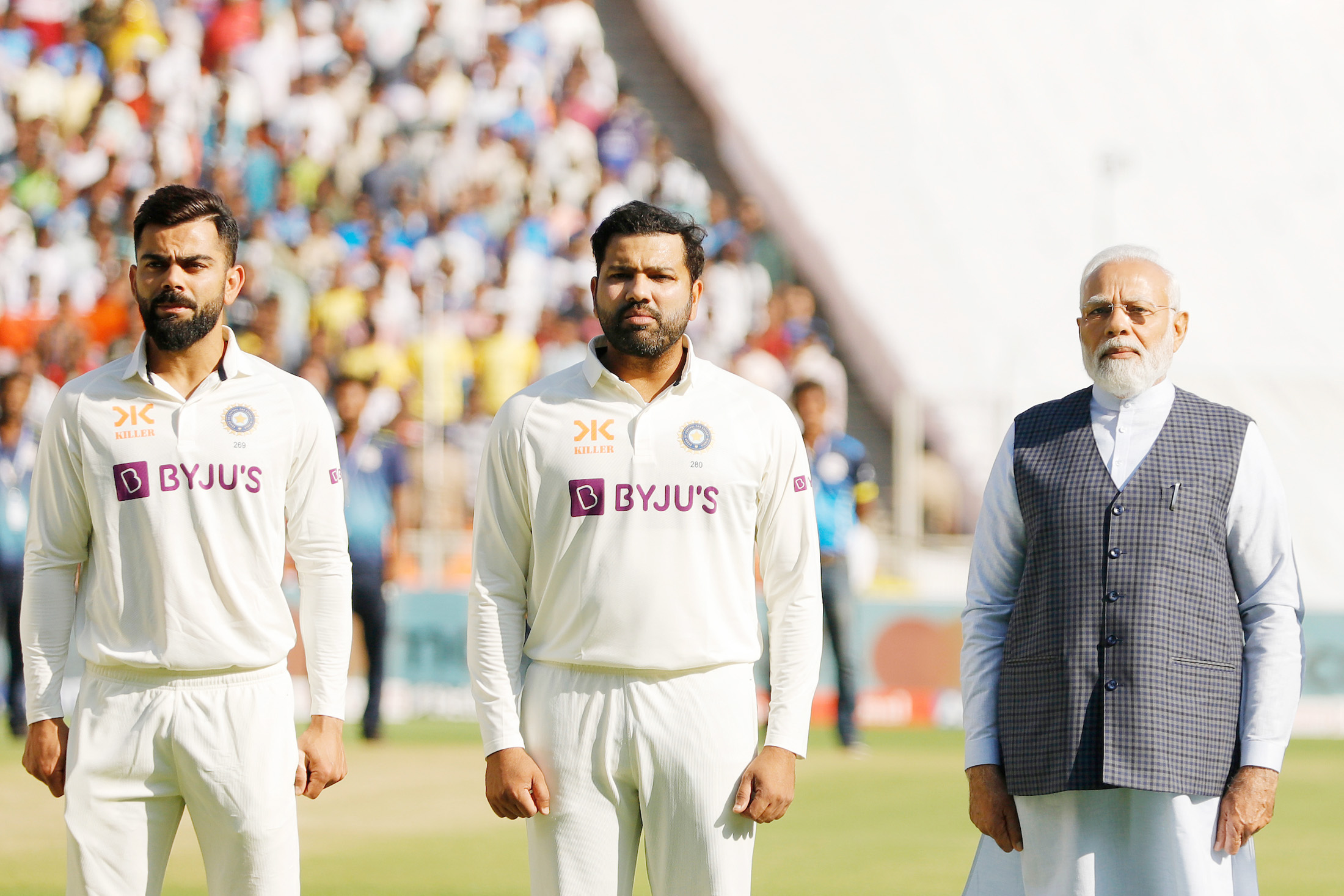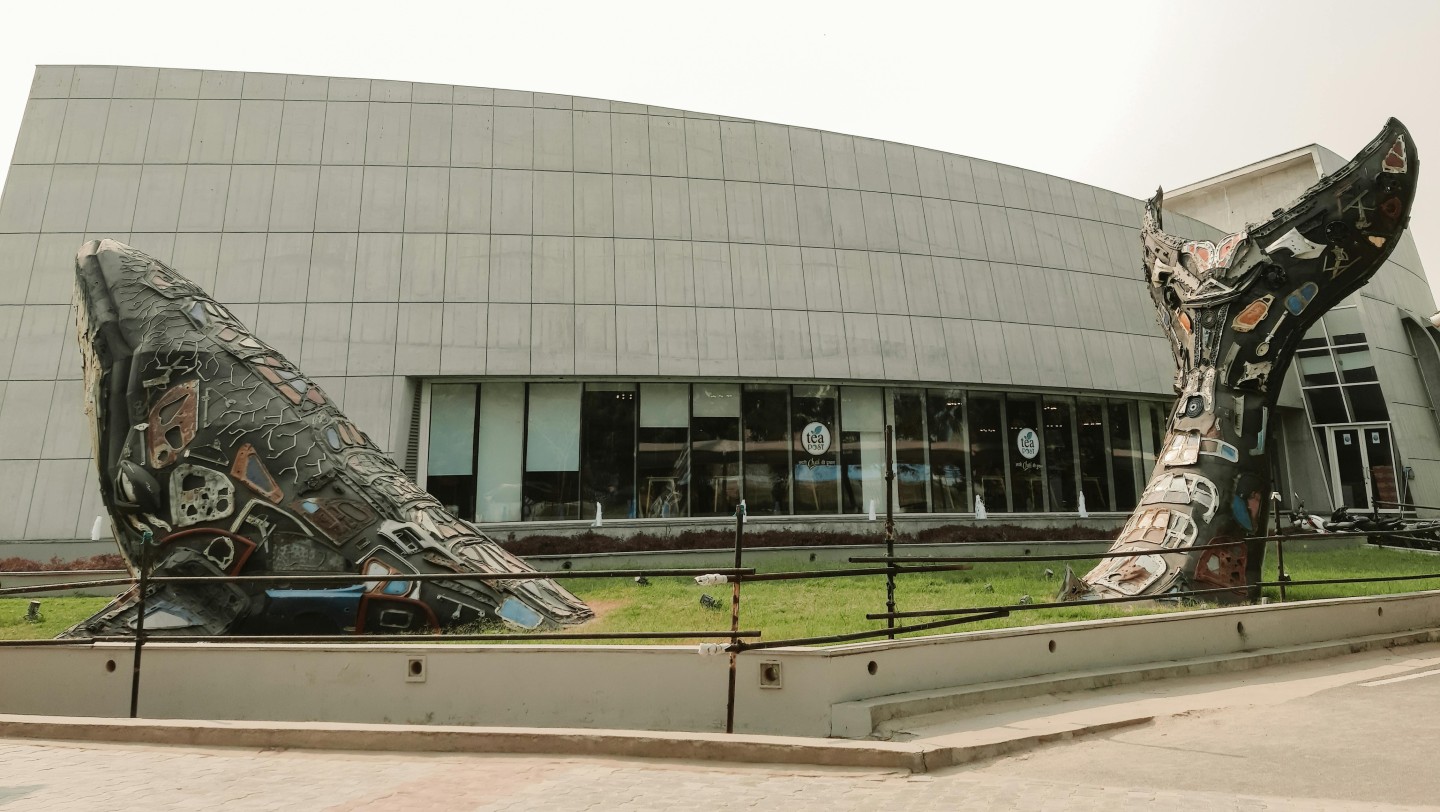The National Education Policy provides the BJP and RSS ample scope to reshape the institutional architecture of education.
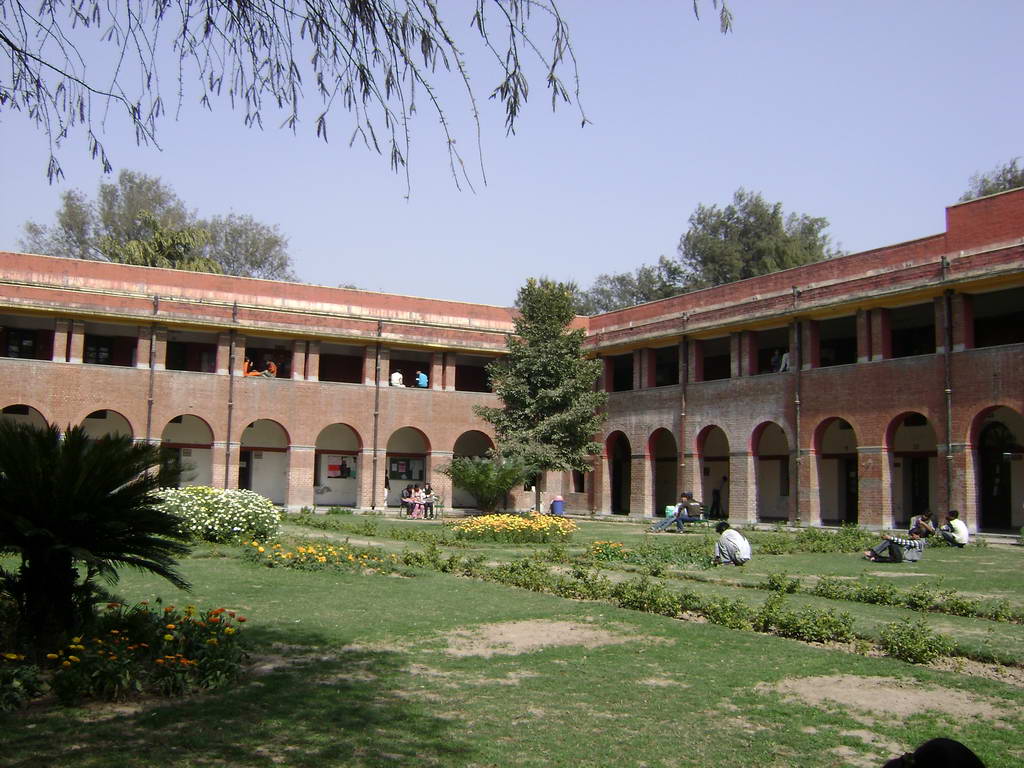 After a decade of Modi’s right-wing, Hindu nationalist rule, India’s education system is on its heels. : Jai Pandya CC BY S.A 2.0
After a decade of Modi’s right-wing, Hindu nationalist rule, India’s education system is on its heels. : Jai Pandya CC BY S.A 2.0
The National Education Policy provides the BJP and RSS ample scope to reshape the institutional architecture of education.
An overhaul of the education system by Prime Minister Narendra Modi’s Bharatiya Janata Party is underway and threatens to erase India’s secular democratic credentials.
Three principles — saffronisation, privatisation and authoritarianism — have animated the BJP’s education policy.
Saffronisation, or the recasting of education in the Hindu nationalist mould through curricular change and institutional restructuring, has historically been a major agenda of the BJP’s parent organisation, the Rashtriya Swayamsevak Sangh (RSS).
Now, after a decade of Modi’s right-wing, Hindu nationalist rule, India’s education system is on its heels.
Still, student movements in India’s leading public universities have resisted, spurred on by the government’s aggressive assault on secular democratic public education. They have championed secular, social justice-oriented education as a core element of the democratic agenda.
But this is changing fast.
The National Education Policy, promulgated by the BJP government in 2020 without any discussion in parliament, is a comprehensive recipe for the saffronisation of education.
Saffronisation tends to reinforce Brahminical stereotypes, glorify authoritarianism, demonise India’s Muslim rulers, deny the historically-ascertained Aryan migration theory, and encourage communal polarisation. There is a refusal to acknowledge the deep caste, class, and gender inequalities that define our society.
The policy seeks to overhaul the entire system, providing unprecedented freedom to private players to make profits in education.
This will further caste and class-based segregations since the division between public and private institutions is often along caste lines.
Savarna students — those falling within the Hindu social hierarchy or caste system — pay for a higher quality of education, while most Bahujan students — those who lie outside the caste system, Scheduled Castes (SC), the Scheduled Tribes (ST), and the Other Backward Castes (OBC) — attend underfunded, understaffed, government schools.
Hindu nationalism as an ideology has a deeply Brahminical character. The government seeks to institutionalise caste-based inequalities through a structurally unequal education system.
The structural inequality is underpinned by a saffron curricular vision. It is full of references to ancient Indian tradition (and none to the Islamic period) as a source of values, but omits the anti-caste and Islamic heritage of medieval India altogether.
The learning objectives, as defined in the policy document, seem to present a curious blend of the Hindu nationalist values and constitutional values.
These objectives have actually been framed in a way that undercuts the significance of constitutional rights. Duties take precedence over rights. Constitutional rights and secularism have been totally excluded from the learning objectives.
In the past, political affiliates of the RSS have made persistent efforts to alter the education system to suit their ideology. Both the Bhartiya Jan Sangh government (1977-1980) and the BJP-led coalition government (1996-2004) have attempted to saffronise education.
Hindu nationalism thrives on social conservatism and inequality, so it tends to attack policies like education subsidies and reservation for marginalised students.
The current BJP government has been ambivalent about caste-based reservations and high on rhetoric against any kind of financial and material transfers to the poor, including subsidies in higher education. .
Reframing Indian history within a Hindu nationalist narrative, under the garb of decolonisation and Indianisation, is another major element of the saffronisation project.
Hindu nationalism understands Indian history through the lens of a sharp Hindu-Muslim divide. Hinduism’s internal unity, its supposed indigeneity and purported ability to integrate faiths that grew out of opposition to the Brahmanical religion are celebrated.
Islam is given “outsider” status, and its alleged efforts to destroy Hinduism through ruthless conquests and large-scale conversions are denigrated.
A new National Curriculum Framework (2023) based on the National Education Policy is already in place though new textbooks based on it are yet to be written.
This marks a complete overhaul of the earlier National Curriculum Framework (2005), which aimed to foster critical thinking and teach children about constitutional rights, social movements, pluralist and secular values, the realities of (and possibilities of liberation from) caste and gender oppression, regional histories as opposed to monolithic “national” histories, and so on.
If the BJP’s track record is anything to go by, new textbooks based on the 2023 framework are likely to be highly problematic.
The BJP government in Rajasthan introduced a new series of school textbooks in 2016 where science textbooks draw upon mythical texts, and the literature and social science textbooks whitewash the evils of the caste system. These textbooks often reinforce caste and gender stereotypes, conflate patriotism with respect for armed forces, and distort key historical events.
The National Education Policy also provides the BJP and RSS ample scope to reshape the institutional architecture of education.
The policy mandates the encouragement of public-private partnerships. Non-governmental organisations and private “charitable” organisations already play key roles in teacher-training, assessment, security services in school/university premises as the government outsources these functions to private bodies.
This not only hollows out the public sector from within, but also allows private enterprises with dubious track records to enter the education system. The policy does not prescribe a regulatory framework to guide the entry and exit of NGOs and other private organisations, giving substantial room to the BJP government to admit NGOs backed by the RSS.
Over the years, the RSS has developed a wide network of schools and organisations of its own through which it can now supply expertise in the form of private interventions.
Formal schools (estimated 12,363), single-teacher schools (estimated 12,001), and thousands of sanskar kendras run by the Akhil Bharatiya Shikshan Sansthan, Vidya Bharati, and other RSS fronts constitute a veritable saffron educational family.
RSS-affiliated NGOs and advocacy groups have systematically tried to influence government policy. In the prelude to the national education policy, the central government set up advisory committees consisting of RSS functionaries and associates for “Indianising” education.
An important body among RSS affiliates, the Bharatiya Shiksha Niti Ayog, headed by Dinanath Batra, has previously advised such changes as the removal of a poem by Punjabi poet Pash, a couplet by Mirza Ghalib, removing mentions of the BJP as a “Hindu” party and the occurrence of riots under BJP administrations from school textbooks, and the avoidance of English, Arabic or Urdu in school syllabi. Batra and his ilk have been a key adviser for the policy too and have welcomed the new framework.
In response to the BJP’s efforts to overhaul the education system, opposition parties have outlined a counter-agenda in their manifestos.
The Left parties have called for drastic reconsideration of the national education policy, if not scrapping it completely. The Indian National Congress, the biggest opposition party, has promised to remove the existing 50 percent cap on reservations for marginalised sections, waive student loans, introduce new scholarships, discourage contractualisation in the teaching profession and maintain a scientific and constitution-based curriculum.
While the opposition’s response is appreciable, it must be lamented that the policy did not lead to a mass movement by students and teachers across the country, in the way other legislations of the ruling government did.
Student protests at leading public universities — from Occupy UGC in 2015 to the protests against discriminatory citizenship laws in 2020 — were met with brutal authoritarian repression and did not lead to a wider groundswell of opinion on education policies.
Such groundswell is necessary if the saffronisation is to be pushed back, irrespective of who wins the general elections.
Dr. Akash Bhattacharya is a political activist, historian and academic. He taught history and education at Azim Premji University from 2019 to 2022 and continues to hold temporary academic positions at different universities in Delhi.
The author is affiliated to the Communist Party of India (Marxist-Leninist) (Liberation).
Originally published under Creative Commons by 360info™.





